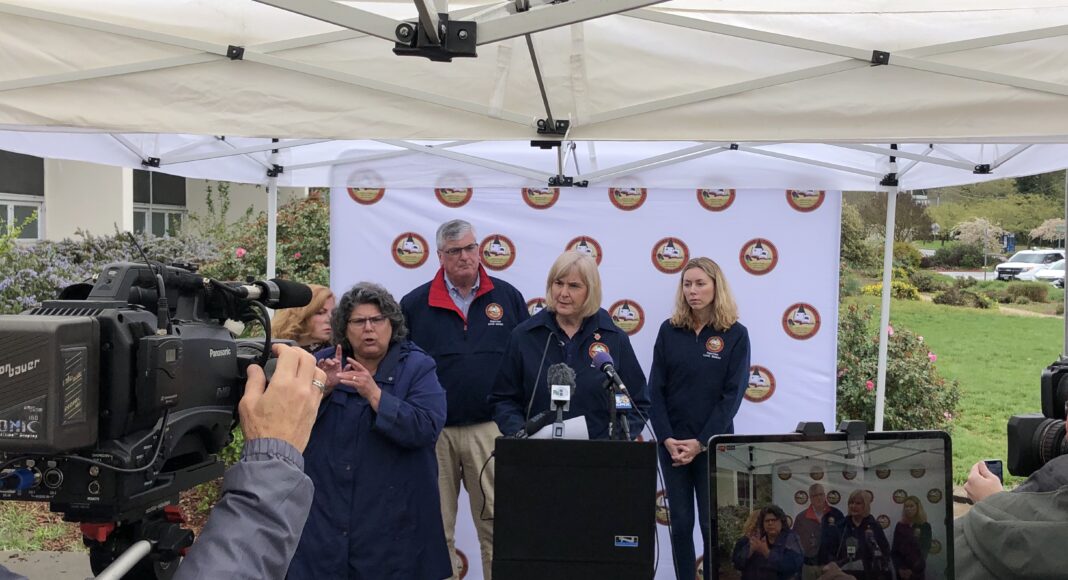After nearly three years, Sonoma County and California are allowing their COVID-19 health emergency declarations to end on Feb. 28.
The county’s order, beginning on March 2, 2020, marked the formal start of local efforts to reckon with the unfolding pandemic. Next, authorities issued temporary shelter-in-place and masking orders, set up testing centers and, much later, coordinated vaccine distribution. But, for the past year or more, officials have been winding down testing and masking requirements, as well as allowing temporary tenant protections to lapse, often arguing that case counts and new variants are less severe than they once were.
“The end of the emergency does not suggest that we have eliminated COVID-19 but rather that we are nearing the endemic phase of the virus that has altered so much of our lives for the past three years,” Dr. Sundari Mase said in a statement announcing the decision. “The variants of COVID-19 in circulation today are not as severe as those of the early days of the pandemic. Armed with widely available vaccines and much more knowledge about the virus, we no longer have to treat COVID-19 as an emergency.”
Across the country, COVID-19 is thought to have killed 1.13 million people, including over 100,000 in California, according to the state’s Department of Health. Despite the end of the formal emergency, there are lingering impacts, including people struggling with long COVID and lasting financial problems.
The end of the emergency declaration comes as the county closes the two remaining vaccination clinics. The Roseland Community Clinic closed on Saturday, Feb. 25, and the Rohnert Park Community Center clinic closed on Tuesday, Feb. 28.
Other impacts of the end of state and local emergency declarations include:
- Beginning on March 31, patients insured through Medi-Cal will need to re-enroll manually. That’s because a pandemic-era law allowing Californians to automatically renew coverage was tied to the emergency declarations. Remembering to renew coverage is particularly important because COVID-19 tests and vaccines, which until now have been subsidized by the federal government, will soon come with an out-of-pocket cost.
- In 2020, democracy went digital. Most public agencies began holding public meetings on Zoom and other online meeting platforms. However, with the end of the state emergency declarations, public boards large and small will be effectively required to hold Brown Act meetings in-person again. Under Assembly Bill 2449, a state law passed last year, public bodies will still have the option to host hybrid meetings—in-person and online at the same time—however board members will be required to attend meetings in-person under most circumstances.
President Joe Biden is expected to end the federal public health emergency on May 11.












Great news that the globalists plandemic scam is finally being brought to a close. I hope that that our unelected health dicatator Sundari Maise will now crawl back under whatever rock she found her way out of and we can get back to actually voting for the people who make decisions for our county. We are all so over Big Pharma and the hostage situation that they have paid our government officials to keep us in. Lets all work in solidarity to asssit Brazil dealing with their Pharma paid president who wants to arrest citizens who wont comply with his order to allow themselves to be injected with gene therapy poison.